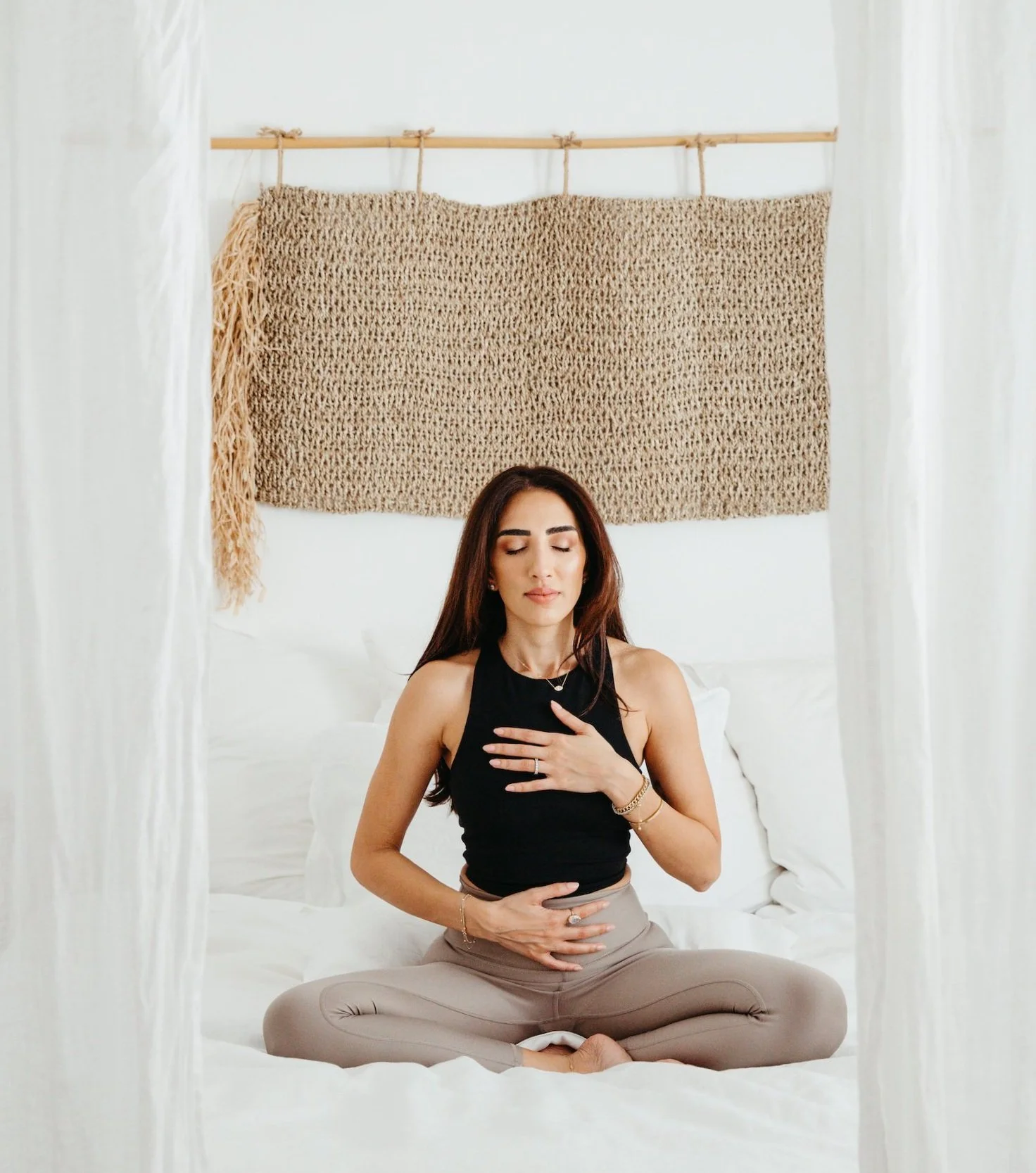My Journey With Meditation
I have struggled with anxiety for as long as I can remember. The relentless worry and overwhelming feelings intensified after I became a mother. Initially, I turned to prescription medication, and while it works wonders for some, it numbed me in ways I wasn't comfortable with. I needed an alternative that would help me feel more like myself.
Discovering Meditation
I began exploring meditation and experimented with various practices, including mindfulness, mantras, body scan, focused movement meditation, and visualizations. However, I struggled to maintain consistency and knew I needed more practice.
Training and Practice
I persisted and gradually extended my practice by signing up for the Meditation Instructor Program with Chopra. The experience gave me the tools and knowledge to understand meditation on a deeper level, reinforcing the importance of patience and persistence.
Benefits I’ve experienced:
Reduced Anxiety: It helps me manage anxiety better than any medication ever did, providing a sense of calm and perspective. It has allowed me to find the root causes of my anxiety and provide safety internally.
Improved Focus: This practice has enhanced my ability to concentrate and calm my overactive mind.
Enhanced Emotional Well-being: Meditation helps me understand and process my emotions. It has allowed me to gain distance from thoughts and emotions, promoting inner peace without repressing feelings.
Better Sleep: My sleep quality has improved, allowing me to fall asleep faster and enjoy more restful nights.
Gratitude: I wake up each morning looking forward to this practice. I am more grateful for the blessings in my life.
Tips for Beginners
When I am asked how to meditate, the answer is much simpler than it is made out to be. Here are some tips to get you started:
Start Small: Begin with just two minutes. It may seem short, but it's a manageable starting point.
Morning Routine: Meditate after waking up in the morning. If necessary, wake up a bit earlier to make time for it.
Check-in with Yourself: Finding a comfortable position before you begin is important. Take a moment to notice how you're feeling.
Accept Thoughts: Understand that thoughts are normal! It's impossible to sit still and in silence the entire time. If your mind wanders, gently bring your focus back to your breath.
No Right or Wrong: There's no wrong way to meditate. Let go of any worries about doing it perfectly.
Body Scan: Do a body scan and notice the sounds around you. It can help ground you in the present moment.
Set a Routine: Make meditation a routine like any other. Set a time that you can stick to each day.
Create a Space: Try to meditate in the same space every time. Make the practice automatic by sandwiching it between two things you must do anyway, like showering in the morning and eating breakfast afterward.
Set a Timer: Download a free meditation app like InsightTimer and set a gentle tone to signal the end of your meditation.
Allow for Rest: If you feel a strong urge to nod off during meditation, go ahead and let yourself sleep. Your body may need it to release stress. Come back tomorrow and try again.
Be Effortless: Meditate effortlessly. Your attention should be fluid and relaxed, not rigid or fixed.
Stay Consistent: Stick with your practice through all the ups and downs.
Meditation has been a game-changer for me, helping me navigate anxiety and reducing daily stressors. I encourage everyone to embark on a journey of self-discovery and inner peace. Start small, be patient, and allow the practice to unfold naturally. The benefits are worth the effort, and the peace it brings is priceless.
If you need guidance on starting your meditation practice, book a complimentary consultation with me today.



